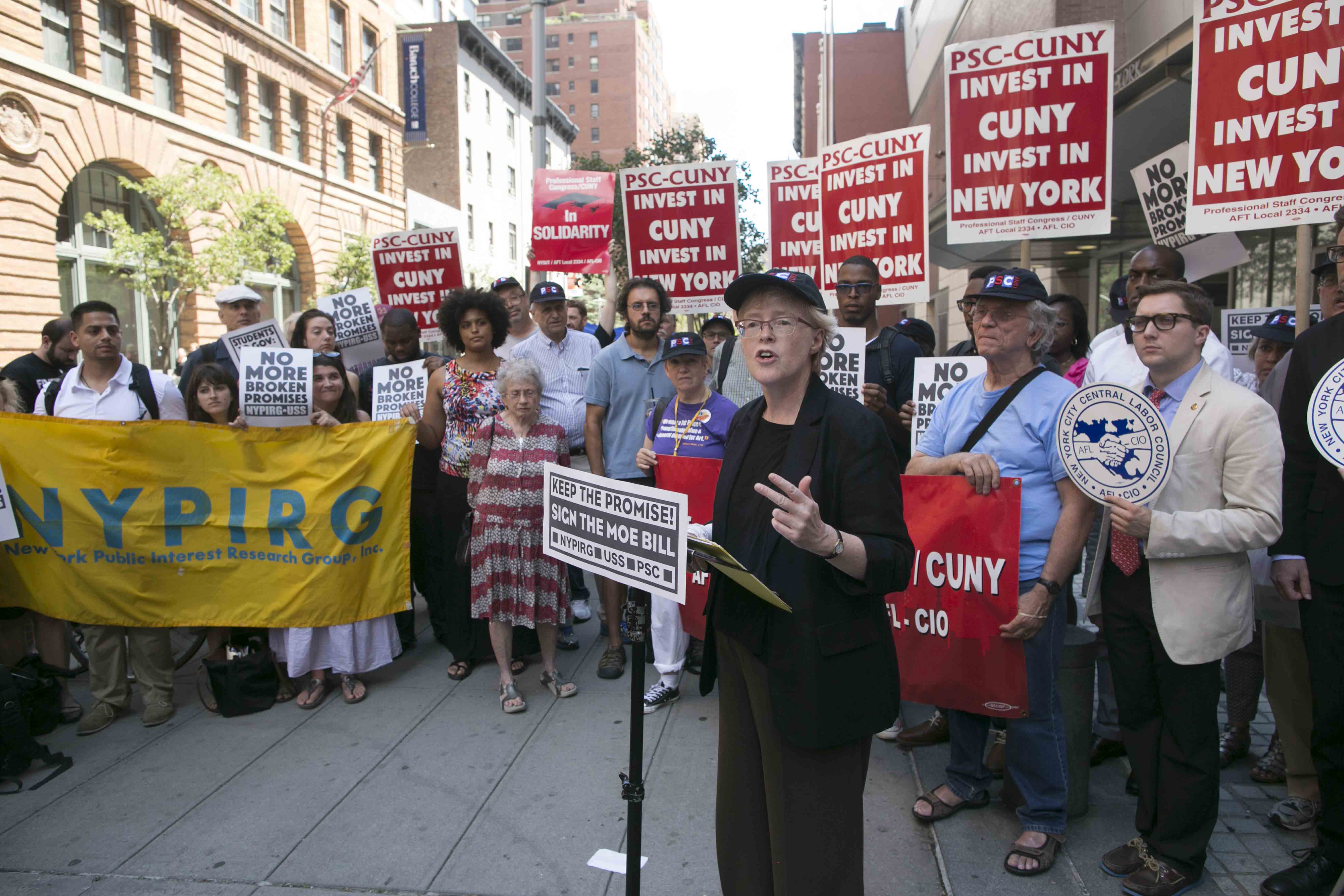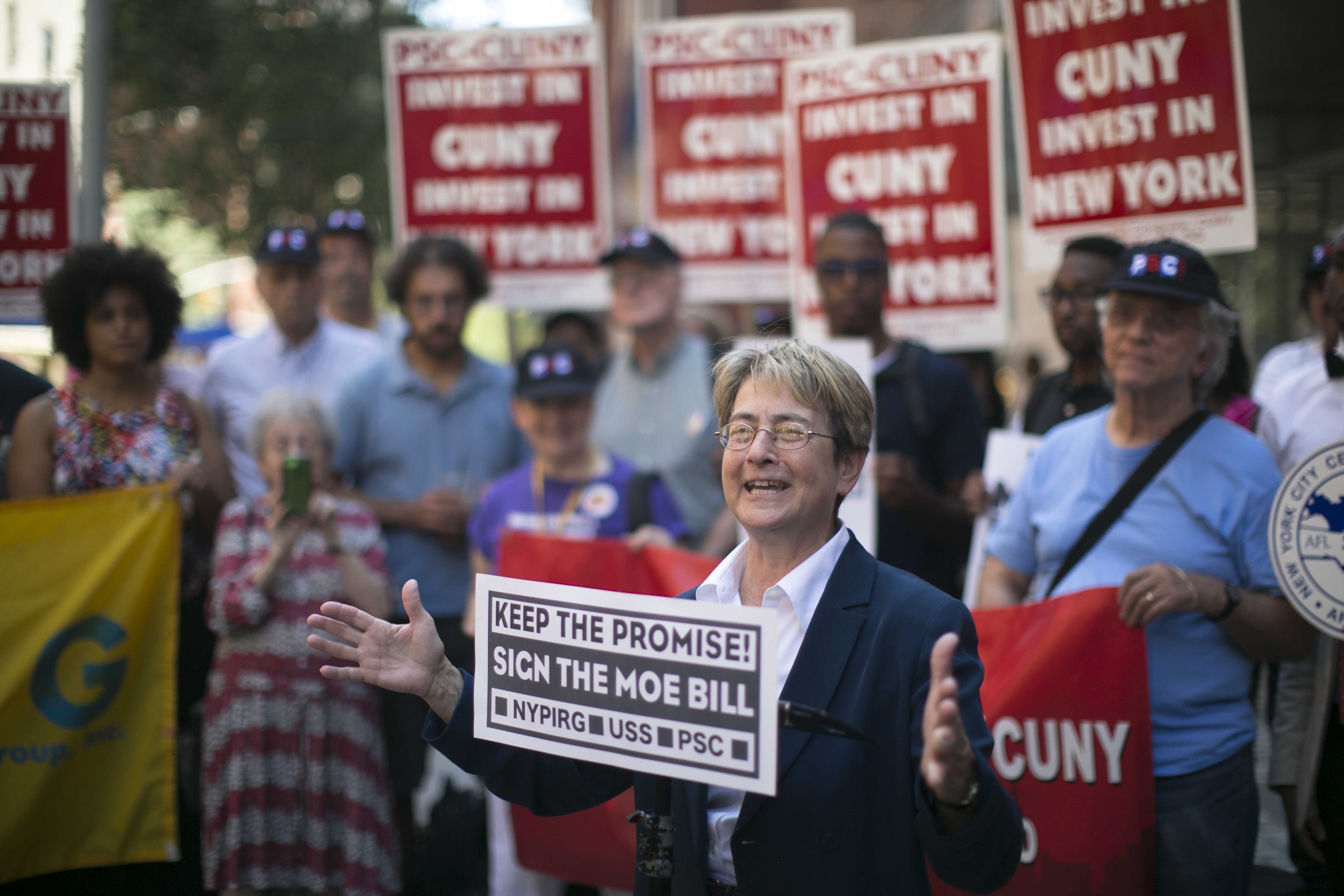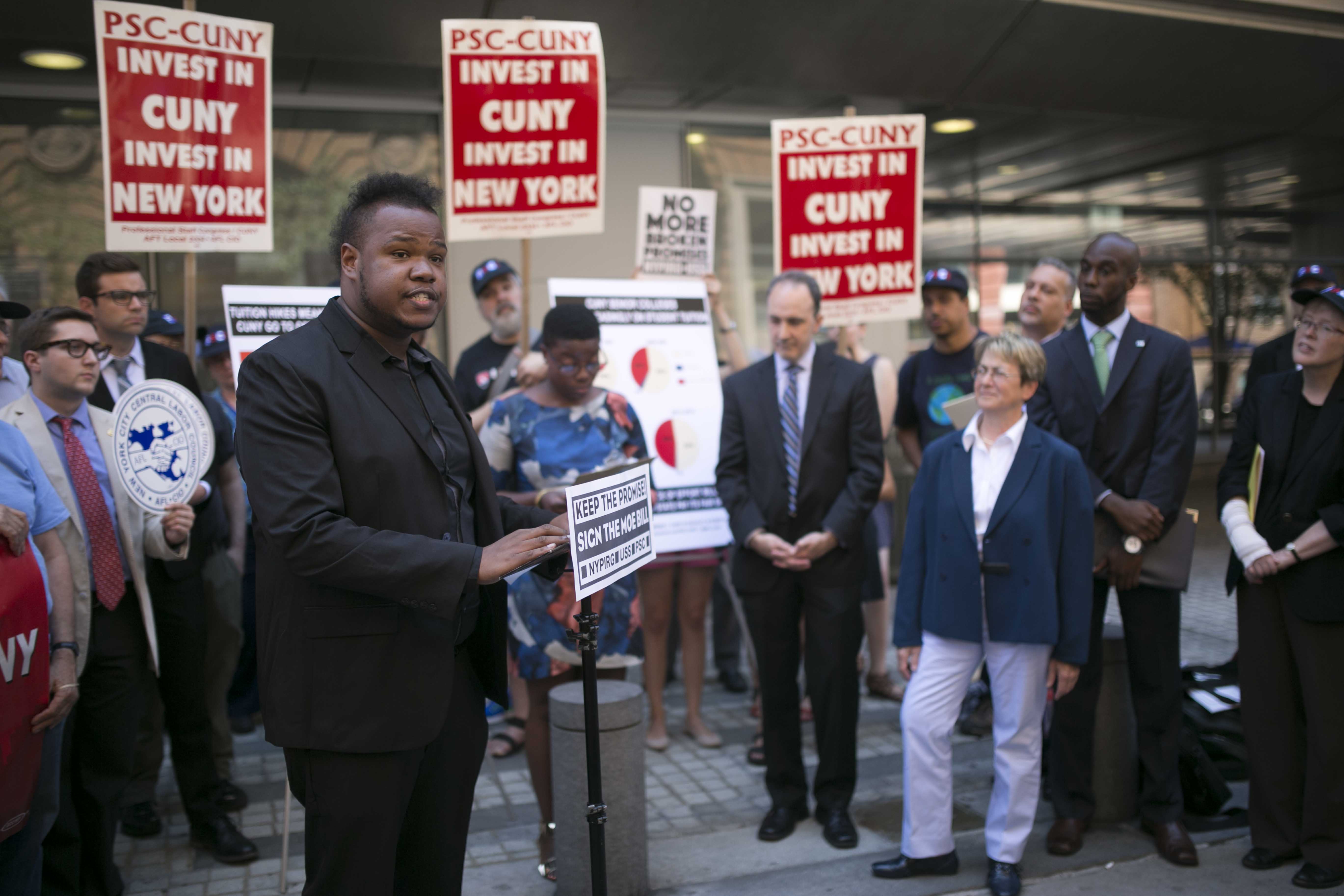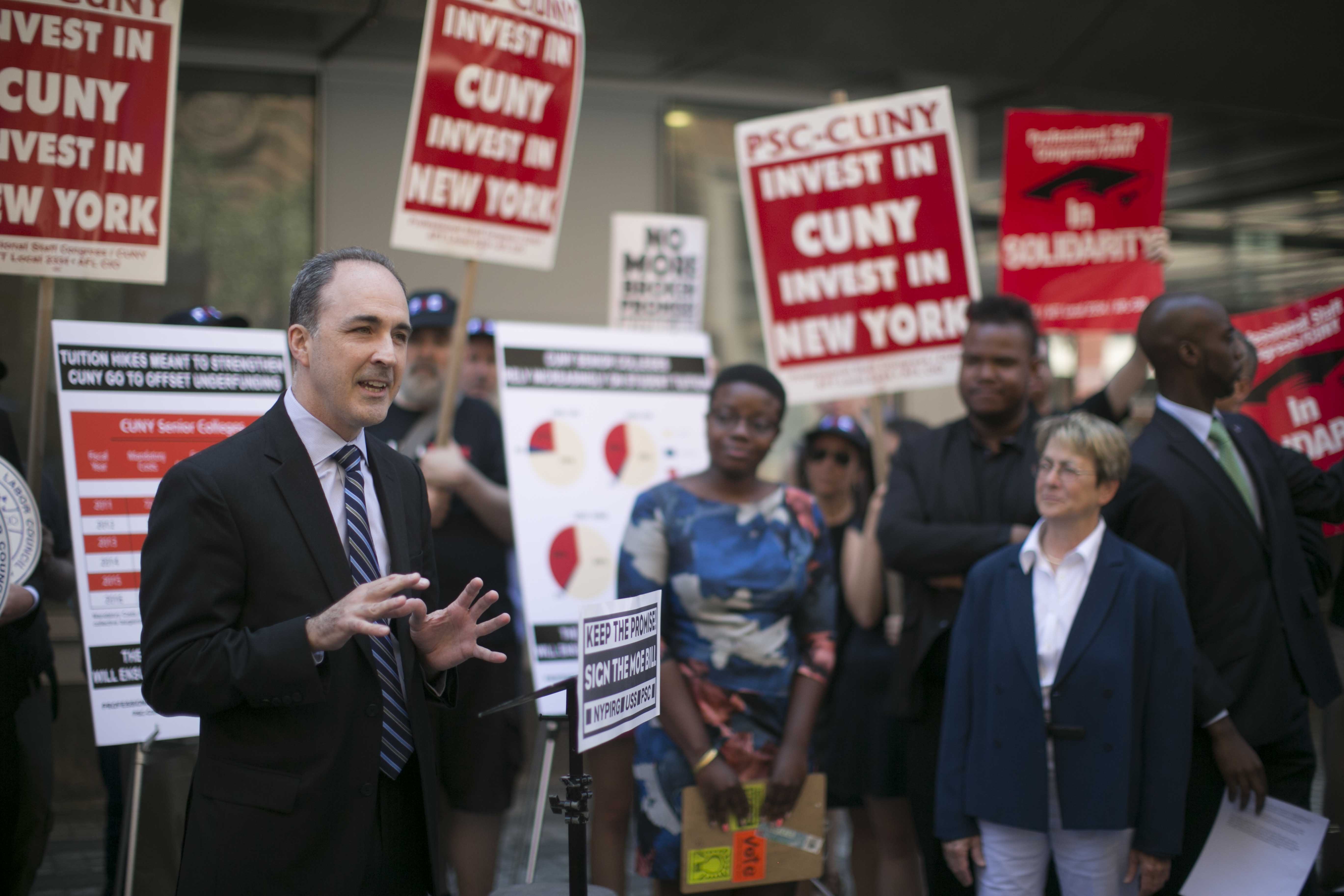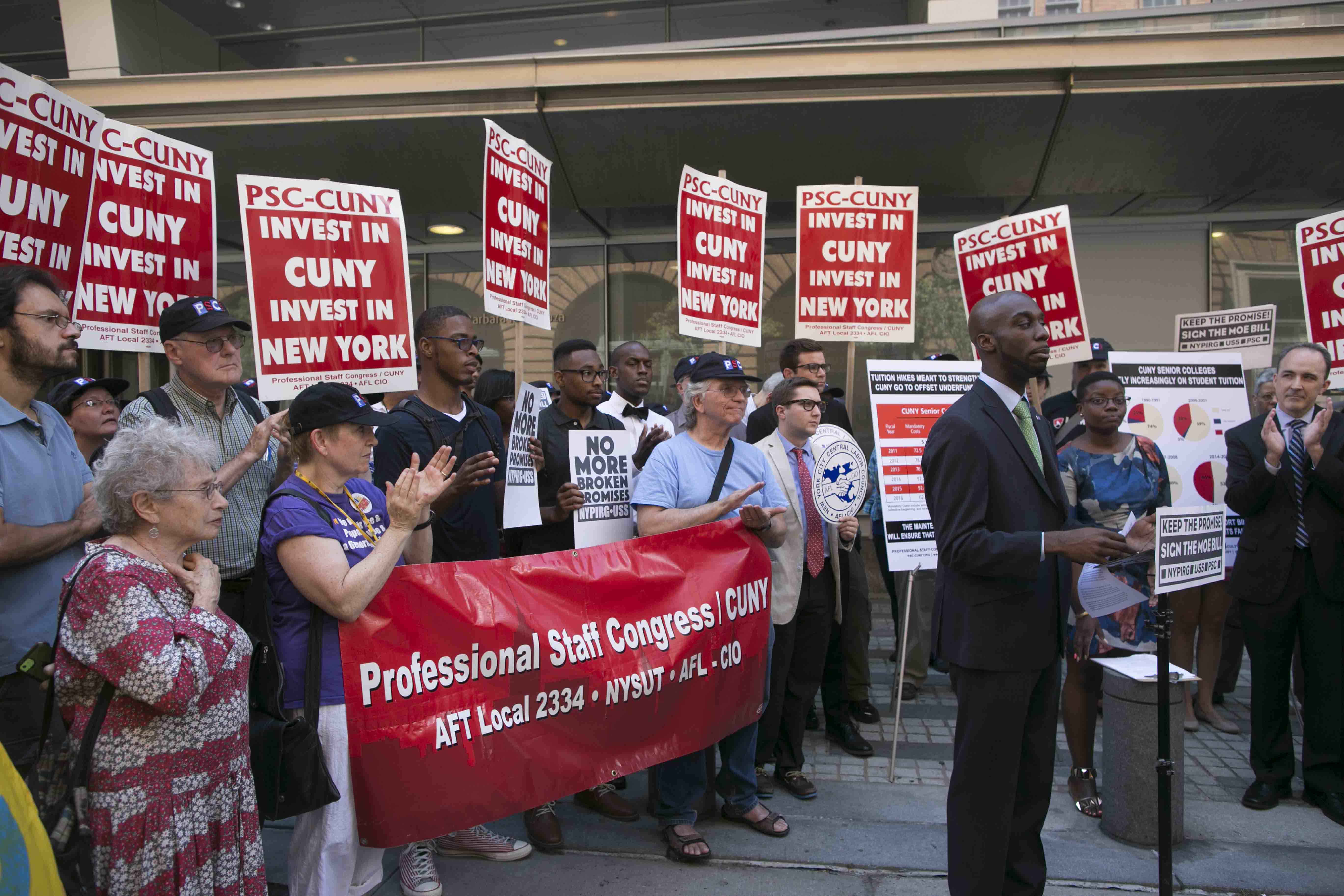Student and faculty leaders gathered at sites throughout the state on Wednesday, July 22 to stress the importance of Gov. Andrew M. Cuomo’s signing “Maintenance of Effort” (M.O.E.) legislation that would improve the quality of public higher education in New York. At Baruch College, CUNY students were joined by their professors, labor leaders, and Assemblymember Deborah J. Glick, the Assembly sponsor of the bill, which passed with bipartisan, near-unanimous support.
The M.O.E. bill (S.281a/A.5370a) would stabilize State funding for New York’s two public university systems by supporting annual basic cost increases for utilities, rent, supplies and equipment, collective bargaining, and other normal operating expenses. Cash-strapped campuses, still recovering from $1.5 billion in cuts and flat funding since 2008, have been forced to use tuition hikes to cover these costs.
The NYSUNY2020 law enacted $1,500 in tuition hikes over five years to improve education at CUNY and SUNY, not to cover unfunded operating costs. That’s why Senate Majority Leader John Flanagan and Assembly Speaker Carl Heastie supported the M.O.E. bill, and why the Higher Education Chairs, Senator Kenneth LaValle and Assemblymember Glick, spearheaded the effort to pass it.
When the bill is delivered to Governor Cuomo, he will have 10 business days to sign or veto it.
Some quotes from the NYC event:
Barbara Bowen, PSC President
“Everybody wins with this legislation. That’s why it received support from legislators in every corner of the state and both sides of the aisle. With stable annual funding for basic operating costs, CUNY and SUNY will be able to sustain high-quality college education, and New Yorkers across the state will have enhanced opportunity for an affordable college degree. Public universities change lives—the M.O.E. legislation means that CUNY and SUNY can continue to offer that possibility to hundreds of thousands of New Yorkers.”
Assemblymember Deborah J Glick
“There is no doubt that an educated workforce begets economic growth. That is why it is so important to invest in our public higher education systems. This Maintenance of Effort proposal reflects the real cost of doing the business of educating our students. New cutting-edge programs demand new faculty. To educate physicians to keep up with increasing demands you need to fully fund health science centers. You cannot be first if your schools scrape by from budget to budget. We need this Maintenance of Effort signed and implemented.”
Sherrod Staton, NYPIRG Board of Directors, BMCC
“By the time the NYSUNY2020 law expires next year, tuition will have gone up 58% at CUNY and 42% at SUNY. The State promised not to use those big tuition hikes to plug budget shortfalls, but that promise was not kept,” said “Many costs were not covered and stagnant State support did not keep up with cost inflation. We are here today to urge the governor to turn the State’s rhetoric into reality by really maintaining support for higher education.”
Vincent Alvarez, President of the New York City Central Labor Council, AFL-CIO
“As college tuition and expenses continue to skyrocket, the financial burdens placed on working families are also increasing to record levels. More than half of CUNY students come from families making $30,000 a year or less, and 42% of CUNY students have to balance their academic work and holding down a job. The enactment of the Maintenance of Effort bill would help to ensure that students have access to the educational tools to help them secure good, middle-class careers.”
Donavan Borington, CUNY University Student Senate Vice Chair for Fiscal Affairs,Baruch College
“I think we can agree the students of the City University of New York have paid their share of incremental tuition fees over the past five years. Students deserve to see the State hold its end of the bargain by funding the costs we all thought would have been covered when the incremental tuition plan was adopted.”

